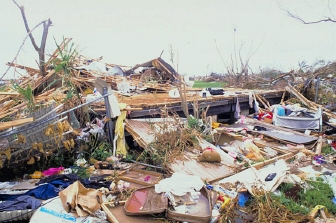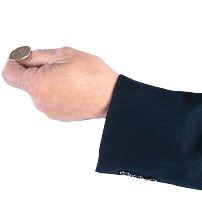A bit slow on posting this week, since I screwed up my back over the weekend and it's been hard to simultaneously a) lie on my back on the floor, while b) doing anything on the computer.
 However, I would like to take a few moments to recap the 5 favorite "self development" books I read in 2005.
However, I would like to take a few moments to recap the 5 favorite "self development" books I read in 2005.
- Managing with Aloha, by Rosa Say.
- As I mentioned in my review earlier this year, this is a "why to" book much more than a "how to" book. It is about managing with values and principles, and is loaded with very poignant stories and words to live by. As I read the book, I was also fortunate enough to become a part of Rosa's "Talking Story" blog and her "Ho'ohana" community.
Along the way, I've met lots of very interesting, genuine people through this process and made some great friends. For me, the magic extends far beyond the book. Read the book, visit the blog, and see if you find the same happens for you.
- As I mentioned in my review earlier this year, this is a "why to" book much more than a "how to" book. It is about managing with values and principles, and is loaded with very poignant stories and words to live by. As I read the book, I was also fortunate enough to become a part of Rosa's "Talking Story" blog and her "Ho'ohana" community.
- Mastery, by George Leonard.
- This is one of my most-often recommended, and most frequently "given" books (I've given tons of copies away to friends). It is great for people making transitions (or trying to) such as graduates. As I summarized it in my review:
"The essence of this book: On the road to Mastery, there are many plateaus where you may become frustrated because you aren't getting any better. True masters learn to savor the plateaus because they understand that they are building character and feeding dormant skills that will blossom later."
- This is one of my most-often recommended, and most frequently "given" books (I've given tons of copies away to friends). It is great for people making transitions (or trying to) such as graduates. As I summarized it in my review:
- Is Your Genius At Work?, by Dick Richards.
- I love books that take you on a worthwhile journey. Dick's book is one of those. It's a guided tour to find your Genius. In my review, I described "genius" as: "that special capability that you have that makes you special, and flavors all the other parts of who you are and how you interact with the world." Isn't that worth discovering? I think so.
- I love books that take you on a worthwhile journey. Dick's book is one of those. It's a guided tour to find your Genius. In my review, I described "genius" as: "that special capability that you have that makes you special, and flavors all the other parts of who you are and how you interact with the world." Isn't that worth discovering? I think so.
- High-Impact Middle Management, by Lisa Haneberg.
- As I assembled this list, I realized I hadn't really reviewed Lisa's book. I could've sworn I did, since I've mentioned it so often this year. As you may recall, I participated in Lisa's "2 Weeks 2 A Breakthrough" pilot earlier this year, which I found out about through her excellent blog Management Craft, which led me to this excellent book. The book, which is often called "H.I.M.M." for short, is an excellent toolkit to help you become a more effective middle manager. It combines solid theory, lucid examples, and practical tools to help you manage yourself and your team more effectively. It's ideal for anyone who manages.
- As I assembled this list, I realized I hadn't really reviewed Lisa's book. I could've sworn I did, since I've mentioned it so often this year. As you may recall, I participated in Lisa's "2 Weeks 2 A Breakthrough" pilot earlier this year, which I found out about through her excellent blog Management Craft, which led me to this excellent book. The book, which is often called "H.I.M.M." for short, is an excellent toolkit to help you become a more effective middle manager. It combines solid theory, lucid examples, and practical tools to help you manage yourself and your team more effectively. It's ideal for anyone who manages.
- Beyond Bullet Points, by Cliff Atkinson.
- This book transformed how I do presentations. In the first review, I cover the essence of the book, the Beyond Bullet Points process, and describe my first results using this technique. In the second review, I describe my experiences with Netcentrics' powerful Beyond Bullet Points PowerPoint Add-In. Check them out if you do presentations.
Honorable Mentions:
- Danger: Quicksand - Have A Nice Day, by David St. Lawrence [Review]
- Six Disciplines for Excellence, by Gary Harpst [Review]
Consciously Not On The List
By the way, before you ask - there is nothing from Covey or David Allen on the list because I read them all before 2005 started. Also, I'm in the midst of a few other good ones to give 2006 a great start.
Read More

 Make no mistake about it - things are still bad back home. People in New Orleans are still without power and basic infrastructure in lots of areas. They are still living in campers and tents on their front lawns because they can't get into their mold-tainted, toxic houses. They're still finding bodies fairly regularly.
Make no mistake about it - things are still bad back home. People in New Orleans are still without power and basic infrastructure in lots of areas. They are still living in campers and tents on their front lawns because they can't get into their mold-tainted, toxic houses. They're still finding bodies fairly regularly.  Would we change the length of our work days? What about the school day?
Would we change the length of our work days? What about the school day?  Back in the late 20th century, my team and I needed to do a lot of hiring as I staffed up a call center. We needed to fill about 80 slots, so we had to interview a lot of people. This brought many challenges to the fore, such as:
Back in the late 20th century, my team and I needed to do a lot of hiring as I staffed up a call center. We needed to fill about 80 slots, so we had to interview a lot of people. This brought many challenges to the fore, such as: